Contenuto
Ottieni un sorriso radioso con tutti e sei gli impianti dentali in Turchia
Sapevi che la Turchia è diventata una destinazione popolare per le cure odontoiatriche, in particolare per gli impianti dentali All on 6? Grazie alla sua combinazione di professionisti qualificati e prezzi accessibili, molte persone trovano qui la soluzione per il loro sorriso.
Gli impianti dentali All-on-6 offrono una soluzione permanente e dall'aspetto naturale a chi ha perso più denti, ripristinando sia la funzionalità che l'estetica. Oltre al trattamento in sé, l'esperienza comprende un'immersione culturale, una calorosa ospitalità e l'opportunità di esplorare la ricca storia e i paesaggi mozzafiato della Turchia. I pazienti che si sottopongono agli impianti dentali All-on-6 in Turchia non solo ritrovano il sorriso, ma intraprendono anche un viaggio di scoperta e ringiovanimento.
Punto chiave:
- Il sistema All-on-6 utilizza sei impianti dentali posizionati strategicamente per sostenere un ponte completo di denti protesici, offrendo maggiore stabilità e supporto osseo rispetto alle protesi tradizionali.
- In Turchia, i pazienti possono risparmiare il 60-70% sugli impianti dentali All-on-6 rispetto ai costi dei paesi occidentali; i prezzi spesso includono la procedura completa, l'alloggio e i trasferimenti.
- Le migliori cliniche turche utilizzano marchi di impianti di alta qualità provenienti da Svizzera e Germania (come Straumann e Nobel Biocare ) e scansioni 3D avanzate per un posizionamento preciso e sicuro.
- La procedura richiede in genere due visite in Turchia, separate da un periodo di guarigione di 3-6 mesi per consentire agli impianti di integrarsi con l'osso mascellare.
- Il fattore più importante per il successo è scegliere una clinica con implantologi esperti e un solido portfolio di casi All-on-6 di successo.
Cosa sono gli impianti dentali All-on-6?
Il sistema si basa su una base di sei impianti in titanio che vengono chirurgicamente inseriti nell'osso mascellare. Questi impianti fungono da radici artificiali. Due impianti vengono solitamente posizionati nella parte anteriore dell'osso mascellare e quattro in quella posteriore, spesso con una leggera angolazione per massimizzare il contatto con l'osso disponibile. Questo posizionamento strategico garantisce resistenza e stabilità eccezionali. Una volta che gli impianti si sono fusi con l'osso mascellare – un processo chiamato osteointegrazione – un ponte completo su misura, composto da 12-14 denti, viene fissato in modo permanente su di essi. Il risultato è un sorriso perfettamente funzionale ed esteticamente bello, che appare, si sente e funziona esattamente come i denti naturali.
Lo sapevate?
Il concetto All-on-6 è stato sviluppato come evoluzione della tecnica All-on-4. I due impianti aggiuntivi offrono una distribuzione più ampia delle forze masticatorie, particolarmente vantaggiosa per i pazienti con osso mascellare più morbido, con conseguente potenziale maggiore stabilità a lungo termine e successo della protesi.
Come trovare le migliori cliniche per All-on-6 in Turchia
Quando si ricerca una clinica, bisogna concentrarsi su questi fattori critici:
- Specializzazione in implantologia: cerca cliniche che dispongano di un reparto dedicato alla chirurgia orale e all'implantologia. L'All-on-6 è una procedura complessa che non dovrebbe essere eseguita da un dentista generico.
- Tecnologia diagnostica avanzata: la clinica deve disporre di una TC 3D a fascio conico (CBCT). Questo requisito è imprescindibile. Permette al chirurgo di mappare con precisione la mandibola, i nervi e i seni paranasali per pianificare il posizionamento dell'impianto con la massima sicurezza e precisione.
- Laboratorio interno: le cliniche dotate di un laboratorio odontotecnico interno hanno un maggiore controllo sulla qualità e sulla precisione del ponte protesico finale. Ciò consente anche regolazioni più rapide.
- Portafoglio di casi verificabili: chiedete di vedere foto e radiografie del prima e del dopo di pazienti che si sono sottoposti a All-on-6. Una clinica di alto livello avrà un ampio portafoglio di casi di successo che sarà orgogliosa di condividere.
- Trasparenza nei materiali: devono essere trasparenti sui marchi degli impianti utilizzati e, al termine del trattamento, fornirti un passaporto dell'impianto.
Pacchetto All on Six Impianti Dentali in Turchia
Uno dei fattori più convincenti che spinge i pazienti a optare per gli impianti dentali All-on-6 in Turchia è il costo significativamente inferiore rispetto a molti altri paesi, in particolare in Europa e Nord America. Nonostante offra trattamenti e strutture di prim'ordine, la Turchia vanta prezzi competitivi, grazie a costi generali inferiori e tassi di cambio favorevoli.
In media, il costo degli impianti dentali All-on-6 in Turchia può essere inferiore fino al 50-70% rispetto agli Stati Uniti o all'Europa, rendendoli un'opzione interessante per i pazienti che cercano cure odontoiatriche di alta qualità senza dover pagare cifre esorbitanti. Questo fattore di convenienza, unito alla rinomata competenza dei professionisti odontoiatrici turchi, posiziona la Turchia come una delle principali destinazioni per gli impianti dentali All-on-6.
`Prezzo degli impianti dentali All on 6 in Turchia
Gli impianti dentali All on 6 in Turchia offrono un'ottima soluzione per ritrovare il sorriso a un costo molto più basso. In media, questi impianti costano dai 6.000 agli 8.000 dollari, il che li rende un'opzione più conveniente rispetto ai 30.000-40.000 dollari del Regno Unito. Un risparmio fino all'80%! La qualità delle cure è eccellente, quindi puoi essere sicuro della tua scelta. Scopri oggi stesso questa opportunità per un sorriso più luminoso!
All on 6 Dental Implants Confronto dei costi dei centri in Turkey
| Fornitore | Procedura | Prezzo |
|---|---|---|
| Soho Dental Clinic | All on 6 Dental Implants, Dentistry | $7900 |
| Tower Dental Clinic | All on 6 Dental Implants, Dentistry | $5800 |
| WestDent Clinic Turkey | All on 6 Dental Implants, Dentistry | $6600 |
| ClinicExpert | All on 6 Dental Implants, Dentistry | $2690 |
All on 6 Dental Implants Cost Comparison in Turkey
| Paese | Procedura | Prezzo |
|---|---|---|
| Canada | All on 6 Dental Implants, Dentistry | $27000 |
| United States | All on 6 Dental Implants, Dentistry | $35000 |
Le migliori cliniche dentali in Turchia per impianti dentali su 6 denti
La Turchia ospita diverse cliniche dentistiche di alto livello, rinomate per l'eccellenza nell'offerta di procedure di implantologia dentale All-on-6 . Queste cliniche danno priorità assoluta alla sicurezza, alla soddisfazione e ai risultati ottimali del paziente, avvalendosi di professionisti altamente qualificati con esperienza in implantologia.
Dotate di strutture all'avanguardia e conformi a rigorosi protocolli di sicurezza, queste cliniche offrono ai pazienti l'accesso alle più recenti innovazioni nella tecnologia implantare, garantendo i più elevati standard di cura durante tutto il processo di trattamento. Con una reputazione di innovazione ed eccellenza, queste cliniche si sono guadagnate la fiducia e il plauso dei pazienti alla ricerca di soluzioni innovative per la perdita dei denti.
Le nostre cliniche partner in Turchia offrono impianti dentali All on 6, garantendo un'assistenza eccellente e medici qualificati per i pazienti internazionali. Esplora qui sotto per trovare la clinica più adatta alle tue esigenze dentali.
Guarda il video informativo sugli impianti dentali All on 6 in Turchia
Esplora la nostra collezione di video sugli impianti dentali All on 6 e sull'odontoiatria in Turchia. Questi video sono pensati per aiutarti a saperne di più sulla procedura, sui consigli per il recupero e su cosa aspettarti lungo il percorso. Immergiti qui sotto per ascoltare storie personali e comprendere il processo, così da sentirti pronto per il tuo percorso.
Testimonianze di pazienti reali su All on 6 Impianti Dentali in Turchia
Scopri le storie di pazienti reali che hanno scelto All on 6 Dental Implants, odontoiatria in Turchia. Queste recensioni di Google e Trustpilot ti offrono informazioni utili su cosa aspettarti!
Domande frequenti sugli impianti dentali All on 6 in Turchia
Cosa sono gli impianti dentali All on 6 e come funzionano?
Gli impianti dentali All on 6 sono una soluzione dentale moderna progettata per sostituire un'arcata completa di denti mancanti utilizzando solo sei impianti. Questa tecnica fornisce una solida base per una protesi fissa, consentendo di migliorare funzionalità ed estetica. Gli impianti vengono posizionati strategicamente nell'osso mascellare per massimizzare il supporto, garantendo stabilità e comfort. La procedura prevede in genere una valutazione approfondita della salute orale del paziente, esami di diagnostica per immagini e un piano di trattamento personalizzato. Molti pazienti scelgono questa opzione per i tempi di recupero più rapidi e la possibilità di godere di risultati immediati con protesi temporanee durante la guarigione.
Perché l'odontoiatria in Turchia è una scelta popolare per gli impianti dentali All on 6?
La Turchia è diventata una delle principali destinazioni per il turismo dentale, in particolare per gli impianti dentali All on 6, grazie a diversi fattori. Il paese offre cure dentistiche di alta qualità con tecnologie avanzate e professionisti esperti a prezzi significativamente inferiori rispetto a molti paesi occidentali. Inoltre, molte cliniche in Turchia offrono pacchetti completi, inclusi alloggio e trasporto, rendendo il viaggio più agevole per i pazienti internazionali. La combinazione di convenienza, competenza e la possibilità di esplorare un paese meraviglioso durante la convalescenza rende la Turchia un'opzione interessante per i trattamenti dentali.
Cosa devo aspettarmi durante il periodo di recupero dopo l'intervento di impianti dentali All on 6?
Il recupero dopo l'impianto dentale All on 6 varia, ma molti pazienti possono aspettarsi un periodo di guarigione iniziale di circa 1 o 2 settimane. Durante questo periodo, è comune riscontrare gonfiore, fastidio o sanguinamento lieve, che possono essere gestiti con i farmaci prescritti. Seguire le istruzioni del dentista per la cura postoperatoria, comprese modifiche alla dieta e pratiche di igiene orale, è fondamentale per garantire una corretta guarigione. La maggior parte dei pazienti può tornare alle proprie normali attività entro pochi giorni, ma la completa integrazione degli impianti può richiedere diversi mesi, richiedendo visite di controllo per aggiustamenti e monitoraggio.
Come faccio a scegliere la clinica giusta per gli impianti dentali All on 6 in Turchia?
Scegliere la clinica giusta per gli impianti dentali All on 6 in Turchia comporta diverse considerazioni. Iniziate cercando cliniche con una solida reputazione, recensioni positive dei pazienti e professionisti dentali esperti specializzati in implantologia. Cercate cliniche che offrano consulenze complete, piani di trattamento trasparenti e gallerie fotografiche del prima e del dopo di pazienti precedenti. È inoltre fondamentale informarsi sulla tecnologia utilizzata, sui materiali per gli impianti e sul supporto fornito durante la convalescenza. Anche l'accessibilità, la padronanza linguistica del personale e l'atmosfera generale della clinica possono influenzare il vostro livello di comfort e la fiducia nel professionista scelto.
La procedura di impianti dentali All on 6 è sicura in Turchia?
Sì, la procedura di impianti dentali All on 6 è generalmente sicura in Turchia, soprattutto se eseguita da dentisti qualificati ed esperti. Molte cliniche aderiscono a standard e protocolli internazionali per garantire la sicurezza del paziente e la qualità delle cure. Prima della procedura, viene effettuata una valutazione completa per identificare eventuali rischi. È importante scegliere cliniche accreditate con recensioni positive e percentuali di successo comprovate per migliorare la sicurezza e la soddisfazione. Inoltre, discutere di eventuali problemi di salute con il proprio dentista aiuterà a personalizzare la procedura in base alle proprie esigenze specifiche.
Pianificare il tuo viaggio di turismo medico per impianti dentali All on 6 in Turchia
Elementi essenziali prima del viaggio
Dovrai assicurarti che il tuo passaporto abbia una validità di almeno sei mesi dalla data di rientro prevista. Verifica i requisiti per il visto per la Turchia in base alla tua nazionalità, poiché alcuni potrebbero dover essere richiesti in anticipo, mentre altri possono ottenerli all'arrivo. Inoltre, raccogli la tua documentazione medica, comprese le cartelle cliniche odontoiatriche e i dettagli di eventuali trattamenti precedenti, per fornire al tuo dentista informazioni complete.
Organizzazione di viaggio
Quando prenotate i voli, considerate la flessibilità nei vostri piani di viaggio, soprattutto per quanto riguarda i voli diretti o quelli in coincidenza. Questo è particolarmente importante per il comfort dopo la procedura. Pianificate il trasporto locale organizzando il trasferimento dall'aeroporto e il viaggio da e per la clinica per evitare stress all'arrivo.
Alloggio
Le opzioni disponibili spaziano dagli hotel alle case di recupero specializzate o agli appartamenti. Considerate fattori come la vicinanza alla clinica, l'idoneità alle esigenze di recupero e la disponibilità di supporto o assistenza durante il soggiorno. Scegliere la sistemazione giusta può migliorare significativamente il comfort durante la convalescenza.
Durata del soggiorno
È essenziale pianificare un periodo di tempo sufficiente in Turchia per la convalescenza e gli appuntamenti di controllo. A seconda del caso specifico e delle raccomandazioni del chirurgo, il periodo di convalescenza potrebbe variare da 1 a 4 settimane. Correre troppo presto per tornare a casa può comportare dei rischi, quindi assicuratevi di avere tempo a sufficienza per la guarigione e gli eventuali aggiustamenti necessari.
Comunicazione
Pianifica le comunicazioni durante il tuo viaggio valutando opzioni come schede SIM locali, roaming internazionale o eSIM. Anche l'utilizzo di app di messaggistica come WhatsApp può aiutarti a rimanere in contatto sia con la tua rete di supporto che con la clinica per eventuali necessità di follow-up.
Finanze
Informa la tua banca dei tuoi piani di viaggio per evitare problemi di accesso ai fondi all'estero. Valuta la possibilità di pianificare le tue finanze per assicurarti di poter gestire comodamente le spese durante il tuo soggiorno in Turchia.
How much are Dental Implants in Turkey?
Dreaming of a full, healthy smile but worried about the high costs of dental implants in your home country? Turkey has rapidly become a top destination for dental tourism, offering cutting-edge treatments at remarkably affordable prices. This comprehensive guide answers your most pressing questions about the cost of dental implants in Turkey, helping you navigate your options for a confident new smile. How much are dental implants in Turkey? "The cost of dental implants in Turkey is significantly more affordable than in the United States, UK, Canada, or Europe. A single tooth implant (including implant, abutment, and crown) typically ranges from €350 to €1,350 (approximately $380 to $1,460 USD). For All-on-4 dental implants, the cost per jaw can range from €2,000 to €3,500 (approximately $2,150 to $3,800 USD)." The appeal of dental implants in Turkey lies in their exceptional value. Patients can often achieve a complete smile restoration for a fraction of the cost they would incur back home, sometimes saving as much as 80-90%. What factors influence the cost of a single dental implant in Turkey? "The cost of a single dental implant in Turkey is influenced by the brand of the implant, the material of the crown, the dentist's experience, the clinic's reputation, and whether additional procedures like bone grafting are needed." When considering a single tooth implant, several elements determine the final price. The brand of the titanium implant (e.g., Nobel Biocare, Straumann vs. other quality brands) can affect cost. The material of the final crown (porcelain-fused-to-metal, full ceramic, or zirconia) also plays a significant role, with zirconia being a more aesthetic and durable, albeit more expensive, option. The expertise of your implant dentist and the standing of the clinic itself also contribute to the overall fee. Furthermore, if you require a bone graft or a sinus lift to ensure sufficient bone for the implant, these will add to the total cost. How do All-on-4 dental implant costs in Turkey compare to single implants? "While a single dental implant in Turkey ranges from €350 to €1,350, All-on-4 dental implants offer a full arch solution at a price point per jaw ranging from €2,000 to €3,500 (approximately $2,150 to $3,800 USD), representing a more cost-effective option for replacing multiple teeth." The All-on-4 concept is designed to restore an entire arch of teeth with just four implants, offering a comprehensive and efficient solution. While the upfront cost for All-on-4 is higher than a single implant, it provides a full set of fixed teeth, making it a very economical choice for patients needing extensive restoration. What is the cost range for full mouth dental implants in Turkey? "A full mouth dental implant restoration in Turkey (both upper and lower jaws, potentially using All-on-4, All-on-6, or All-on-8 approaches) typically ranges from €15,000 to €17,000 (approximately $16,200 to $18,400 USD), though this can vary based on the number of implants and prosthetic materials." For patients requiring a complete smile makeover, Turkey offers incredibly competitive prices for full mouth reconstructions. This typically involves placing multiple implants (e.g., 4, 6, or 8 per jaw) to support custom-made bridges that restore both function and aesthetics to the entire mouth. Why are dental implants so much cheaper in Turkey compared to Western countries? "Dental implants are significantly cheaper in Turkey due to a lower cost of living, favorable exchange rates, reduced operational expenses for dental clinics, high competition within the dental tourism sector, and government support for medical tourism." The affordability of dental implants in Turkey isn't a reflection of lower quality, but rather a combination of economic advantages. The overall cost of living and running a business is lower in Turkey, which translates to reduced overhead for dental clinics. The favorable exchange rate for major currencies further amplifies the savings for international patients. A highly competitive market driven by a large volume of medical tourists also encourages clinics to offer attractive pricing. Do clinics in Turkey offer all-inclusive packages for dental implants? "Yes, many reputable dental clinics in Turkey offer comprehensive all-inclusive packages for dental implants, which often cover consultations, X-rays, 3D CT scans, surgery, local anesthesia, temporary and permanent prosthetics, follow-up visits, VIP transfers, and sometimes even accommodation." These packages are designed to provide transparency and convenience, helping patients manage their budget effectively without unexpected costs. Always confirm the exact inclusions of any package you consider. What are the common additional costs for dental implants in Turkey? "Common additional costs for dental implants in Turkey may include bone grafting (if insufficient bone density), sinus lifts (for upper jaw implants), and potentially IV sedation if preferred over local anesthesia. These are typically not part of the base implant cost." While many packages are comprehensive, certain preliminary procedures might be necessary to ensure the success of your implants. Bone grafting adds around €90-€385 per unit, and sinus lifts around €190-€370. It's crucial to discuss these potential needs with your dentist during the consultation. Is the quality of dental implants in Turkey comparable to Western standards despite the lower cost? "Yes, many reputable dental clinics in Turkey adhere to high international standards of quality, employing experienced, often internationally trained implantologists and utilizing state-of-the-art technology and globally recognized implant brands (like Nobel Biocare or Straumann)." The lower cost is generally due to economic factors, not a compromise on quality. Many Turkish dentists are highly skilled specialists with extensive experience in implantology, and clinics invest in modern equipment and high-quality implant materials. What should I look for in a reputable dental clinic for implants in Turkey? "When choosing a dental clinic for implants in Turkey, look for international accreditations, dentists' qualifications and experience in implantology, transparent treatment plans and pricing, positive patient reviews, and clear communication about aftercare and warranties." Thorough research is key. Check for certifications, ask about the dentists' specific training in implant surgery, and read testimonials. Ensure the clinic provides a detailed treatment plan outlining all steps and costs, and clarify their policies on warranties for the implants and prosthetics. How long is the typical process for getting dental implants in Turkey? "The typical process for dental implants in Turkey usually involves two trips: an initial trip for implant placement (2-7 days), followed by a healing period of 3-6 months, and then a second trip for prosthetic placement (5-10 days)." This two-stage process allows sufficient time for osseointegration, where the implant fuses with your jawbone, ensuring a strong and stable foundation for your new teeth. Restoring your smile with dental implants in Turkey offers an appealing combination of affordability and quality. By understanding the costs, the influencing factors, and diligently researching reputable clinics, you can make an informed decision and embark on your journey to a confident, healthy smile. Contact PlacidWay today to explore leading dental clinics in Turkey specializing in dental implants.
Are There Any Unexpected Costs for Dental Treatment in Turkey for Europeans?
Are There Any Hidden Costs for Dental Treatment in Turkey For Europeans? Turkey has become a global hotspot for high-quality, affordable dental care, attracting thousands of international patients each year. The significant price difference compared to countries like the US, UK, and Australia is a major draw. However, the prospect of traveling abroad for dental work can come with concerns about transparency and unexpected expenses. The question on many people's minds is: are there any hidden costs for dental treatment in Turkey? The straightforward answer is that while reputable clinics strive for transparency, potential extra charges can exist if patients are not fully aware of what their treatment package includes. Understanding these potential costs is key to a smooth and stress-free dental tourism experience. This guide is designed to shed light on all the potential hidden costs you might encounter. We will break down what is typically included in the initial quote and what might be considered an 'extra'. From the initial consultation and diagnostic tests to the materials used and aftercare, being well-informed will empower you to ask the right questions and choose a clinic that offers true value and transparency. The goal is to ensure that the attractive price you are quoted is the price you actually pay, with no unwelcome surprises along the way. By the end of this article, you will have a clear understanding of how to navigate the financial aspects of getting your dental work done in Turkey, ensuring your journey to a new smile is as seamless as it is affordable. What is typically included in the advertised price for dental treatment in Turkey for Europeans? "Typically, the advertised price for dental treatment in Turkey for europeans, especially in 'all-inclusive' packages, covers the core dental procedure, the dentist's fees, and often accommodation and airport transfers." When you see a price for dental implants, veneers, or a full smile makeover in Turkey, it usually encompasses the main components of your treatment. For instance, a dental implant package will generally include the implant itself, the abutment, and the crown. Similarly, a veneer package will cover the cost of the veneers per tooth. Many clinics, especially those catering to international patients, bundle their services into packages to simplify the process. These packages often include a set number of nights in a partner hotel and VIP transfers between the airport, hotel, and the clinic. However, it's crucial to remember that the level of inclusivity can vary significantly from one clinic to another. A lower advertised price might not be as comprehensive as a slightly higher one. Always request a detailed breakdown of what is included in the quoted price. This should be a clear and itemized list that leaves no room for ambiguity. A reputable clinic will be more than happy to provide this information, as it builds trust and demonstrates their commitment to transparency. Are initial consultations and X-rays considered extra costs? "In most cases, initial consultations and standard X-rays (like panoramic X-rays) are included in the treatment package at reputable dental clinics in Turkey. However, more advanced scans may incur an additional fee." Most dental clinics in Turkey offer free initial consultations to attract international patients. These consultations can often be done remotely, where you send pictures of your teeth and any existing X-rays for a preliminary assessment. Once you arrive in Turkey, a more thorough in-person consultation will be conducted, which typically includes a panoramic X-ray to assess your overall dental health. For straightforward cases, these initial diagnostic services are usually part of the package. Where you might encounter an extra charge is if you require more detailed imaging, such as a 3D Cone Beam Computed Tomography (CBCT) scan. This type of scan provides a much more detailed view of your jawbone and is often necessary for complex implant placements. While some premium 'all-inclusive' packages may cover the cost of a CBCT scan, many clinics will charge for it separately. It is essential to clarify this with the clinic beforehand, especially if you suspect you might need a more complex procedure. What about the cost of anesthesia? Is it always included? "Local anesthesia is almost always included in the quoted price for dental procedures in Turkey. However, if you opt for or require sedation or general anesthesia, this will likely be an additional cost." For the vast majority of dental treatments, including fillings, crowns, and even standard implant placements, local anesthesia is sufficient to ensure a painless experience. The cost of local anesthesia is minimal and is factored into the overall price of the procedure. You should not expect to see a separate charge for this on your bill. However, for patients who have dental anxiety or are undergoing extensive procedures like a full mouth reconstruction, sedation or even general anesthesia might be an option. These services are provided by a qualified anesthesiologist and require more resources and monitoring, hence they come at an extra cost. If you think you might prefer sedation, you should inquire about the availability and the associated fees when you are getting your initial quote. This will prevent any surprises on the day of your treatment. Are there different prices for different materials for Europeans? "Yes, the type and brand of materials used for your dental treatment can significantly impact the final cost. The initial quote you receive may be for standard materials, with premium options available at an extra charge." This is one of the most common areas where "hidden" costs can appear. For example, when getting dental crowns or veneers, the price will vary depending on whether you choose porcelain-fused-to-metal (PFM), zirconia, or E-max. Zirconia and E-max are considered premium materials due to their superior aesthetics and durability, and they will be more expensive than PFM. Similarly, for dental implants, the brand of the implant plays a crucial role in the cost. A well-known, high-quality implant brand from Switzerland or Germany will cost more than a lesser-known brand. When you receive a quote, it's vital to ask which specific materials and brands are included. If the quote seems significantly lower than others, it might be because it's for standard, lower-cost materials. A transparent clinic will present you with all the options and explain the pros, cons, and price differences of each. This allows you to make an informed decision based on your budget and preferences. What if I need additional procedures like a bone graft or sinus lift? "Additional procedures such as bone grafts, sinus lifts, or tooth extractions are typically not included in the standard price for dental implants and will be charged separately." For a dental implant to be successful, there needs to be sufficient bone density in the jaw to support it. If you have been missing a tooth for a while, you may have experienced bone loss. In such cases, a bone graft is necessary to build up the bone. Similarly, if you are getting implants in the upper jaw, a sinus lift might be required to create enough space for the implant. These are surgical procedures that require additional time, materials, and expertise, and therefore, they are not part of the standard implant price. A good dental clinic will identify the need for these additional procedures during your initial assessment (ideally through a CBCT scan) and include them in your detailed treatment plan and quote from the beginning. However, if the need for a bone graft or sinus lift is only discovered after you have arrived in Turkey, it will be an unexpected but necessary additional cost. To avoid this, it's best to provide the clinic with as much information as possible, including recent X-rays, before you travel. Are temporary crowns or veneers included in the price? "In most comprehensive dental treatment packages in Turkey, the cost of temporary crowns or veneers is included. However, it's always wise to confirm this with your chosen clinic." When you are getting dental crowns or veneers, the process usually involves two stages. In the first stage, your teeth are prepared, and impressions are taken. These impressions are then sent to a dental lab to create your permanent restorations. This process can take a few days. In the meantime, you will be fitted with temporary crowns or veneers to protect your prepared teeth and maintain your appearance. The cost of these temporary restorations is usually factored into the overall price of your treatment. However, you should not take this for granted. Some clinics might offer a very low baseline price that excludes temporaries. It's a simple but important question to ask during your consultation. Ensuring that temporaries are included will prevent the inconvenience of having to pay extra for them or, in a worst-case scenario, having to go without them while you wait for your permanent restorations. What are the costs for aftercare and follow-up appointments? "Immediate aftercare and follow-up appointments within your treatment period in Turkey are generally included. However, long-term follow-up care in your home country will be your own responsibility and cost." Reputable dental clinics in Turkey will provide you with all the necessary aftercare instructions and any immediate follow-up appointments required before you head back home. This is part of ensuring a successful treatment outcome. You will also be given a supply of any necessary medications, such as painkillers or antibiotics, which are usually included in the package price. The "hidden" cost in this area relates to long-term care. Dental implants, for example, require regular check-ups and professional cleanings, just like natural teeth. These ongoing maintenance appointments will need to be done with a dentist in your home country, and you will be responsible for these costs. It's important to factor in the long-term maintenance costs when considering the overall affordability of getting dental treatment abroad. Do I have to pay for medication separately? "Most all-inclusive dental packages in Turkey include the cost of essential medications required immediately after your procedure, such as antibiotics and painkillers." When you undergo a dental procedure like an extraction, root canal, or implant placement, your dentist will likely prescribe antibiotics to prevent infection and painkillers to manage any discomfort. The cost of these initial medications is typically included in your treatment package. The clinic will usually provide you with the necessary supply to cover the first few days of your recovery. However, if you require any special medication due to a pre-existing condition or if you need a repeat prescription after you have finished the initial supply, you may have to pay for it separately. It's always a good idea to bring any regular medications you take from home and to clarify with the clinic what is included in terms of post-operative medication. Are there any hidden fees related to travel and accommodation in "all-inclusive" packages? "While 'all-inclusive' packages are designed to cover your accommodation and transfers, there can be hidden fees related to flight tickets, hotel upgrades, extra nights, or personal expenses." The term "all-inclusive" in the context of dental tourism in Turkey usually refers to the dental treatment, accommodation, and ground transfers. Your flight tickets are almost always your own responsibility. When it comes to accommodation, the package will typically include a specific number of nights in a standard room at a partner hotel. If you wish to upgrade to a better room, stay for extra nights, or have a companion stay with you, there will be additional charges. Furthermore, your personal expenses, such as food, sightseeing, and shopping, are not included in the package. It's important to budget for these separately. To avoid any misunderstandings, ask the clinic for the name of the hotel and what is included in the accommodation (e.g., breakfast). This will help you plan your budget more accurately. What happens if there are complications? Are correction procedures free? "Reputable dental clinics in Turkey provide a warranty or guarantee for their work. Minor adjustments are usually free, but the terms for correcting more significant complications can vary." This is a critical aspect to clarify before you commit to any treatment. A good clinic will stand by its work and offer a warranty, especially for procedures like implants and crowns. This warranty should cover any defects in the materials or workmanship. For example, if a crown cracks or an implant fails within the warranty period, the clinic should rectify the issue at no extra cost for the dental work itself. However, you will likely have to cover your own travel and accommodation expenses for the return trip. It's essential to get the warranty terms in writing. Understand what is covered, for how long, and what might void the warranty (e.g., poor oral hygiene or getting work done on the same tooth by another dentist). A transparent clinic will have a clear and fair warranty policy. How can I get a fully transparent and all-inclusive quote? "To get a fully transparent and all-inclusive quote, you must provide the clinic with detailed information about your dental health, including recent X-rays, and ask for an itemized breakdown of all potential costs." The key to avoiding hidden costs is proactive and clear communication. Don't just accept the initial price you are given. Engage with the clinic's patient coordinator and ask detailed questions. Here’s how you can ensure transparency: Provide comprehensive information: Share clear photos of your teeth and gums, and if possible, a recent panoramic X-ray. The more information the dentist has, the more accurate your initial treatment plan and quote will be. Request an itemized quote: Ask for a detailed written quote that lists every single component of your treatment, including the consultation, X-rays, the procedure itself, the materials to be used, anesthesia, temporary restorations, and aftercare. Discuss potential additional procedures: Ask the dentist if they foresee the need for any other treatments, like a bone graft or extractions, and what the costs for these would be. What specific questions should I ask my dental clinic to avoid hidden costs? "To avoid hidden costs, you should ask your dental clinic in Turkey a series of specific questions about what is included in the quote, the materials they use, their warranty policy, and any potential additional charges." Being prepared with a list of questions can save you a lot of money and stress. Here are some essential questions to ask: Is the price quoted a package deal? What exactly does it include? Are there any additional charges for consultations, X-rays, or 3D scans? What type and brand of materials will be used for my crowns/veneers/implants? Are there other options, and what are the price differences? Is the cost of local anesthesia, sedation, or general anesthesia included? Will I need any additional procedures like a bone graft or sinus lift? If so, what is the cost? Is the cost of temporary restorations included? What does the warranty cover, and for how long? Do I have to pay for travel and accommodation if a correction is needed? What are the payment terms? Are there any fees for using a credit card or for currency exchange? Are there any currency exchange or payment processing fees? "Yes, there can be additional fees related to currency exchange and payment processing when paying for your dental treatment in Turkey. It's important to clarify the accepted payment methods and any associated charges." Most dental clinics in Turkey will quote their prices in Euros, US Dollars, or British Pounds for international patients. When you pay, the final amount in your home currency will depend on the exchange rate at that time. If you are paying by credit card, your bank may charge a foreign transaction fee. Some clinics may also add a small percentage (typically 2-3%) for credit card payments to cover their own processing fees. To keep costs down, you might consider paying in cash, but be mindful of the risks of carrying large amounts of money. Another option is a bank transfer, but check for any fees from your bank. The best approach is to discuss all payment options with the clinic in advance and choose the one that is most cost-effective for you. Do I need to pay for a translator? "At most dental clinics in Turkey that cater to international patients, translation services are provided free of charge. The staff, including dentists and patient coordinators, are often fluent in English and other languages." Language barriers are a common concern for medical tourists. However, the top dental clinics in Turkey have invested heavily in creating a welcoming environment for international patients. This includes having multilingual staff. Your patient coordinator, who will be your main point of contact, will likely be fluent in your language. The dentists themselves often have excellent English skills, having trained or attended conferences internationally. It is highly unlikely that you would need to hire and pay for your own translator. However, it's always a good idea to confirm this with the clinic. A good clinic will ensure that you can communicate effectively and comfortably throughout your treatment journey. How do I ensure the quoted price is the final price? "To ensure the quoted price for your dental treatment in Turkey is the final price, you need to choose a reputable clinic, get a detailed and itemized treatment plan in writing, and have a clear understanding of the clinic's warranty and complication policies." Ultimately, the best way to avoid hidden costs is to do your due diligence. Here's a summary of the key steps: Research and choose a reputable clinic: Look for clinics with a long history of treating international patients, positive reviews, and international accreditations. Have a thorough remote consultation: Provide them with all the necessary information to create an accurate initial plan. Get everything in writing: Your treatment plan should be detailed and itemized. Your warranty policy should be clear and comprehensive. Ask questions: Don't be shy about asking all the questions we've outlined in this guide. A good clinic will welcome your questions. By taking these steps, you can be confident that the attractive price you are quoted for your dental treatment in Turkey will be the final price you pay, allowing you to focus on what truly matters: achieving a healthy and beautiful smile. Ready to explore your options for high-quality, affordable dental care in Turkey? PlacidWay can help you connect with trusted and pre-screened dental clinics. Explore our network of world-class dental providers and get a free, no-obligation quote for your personalized treatment plan. Your journey to a new smile starts here!
What Do All-Inclusive Dental Packages in Turkey Include?
Turkey has firmly established itself as a premier destination for dental tourism, offering a compelling blend of high-quality care, advanced technology, and significantly lower prices. A key reason for its popularity is the widespread availability of all-inclusive dental packages. These packages are designed to simplify the entire process for international patients, bundling multiple services into a single, transparent price. The idea is to remove the stress and uncertainty of arranging treatment in a foreign country, allowing you to focus solely on achieving your new smile. But what exactly does "all-inclusive" mean in this context? For anyone considering dental work in Turkey, understanding the components of these packages is crucial. While they offer incredible convenience and value, the specifics can vary from one clinic to another. This guide will provide a detailed and comprehensive look into what you can typically expect from an all-inclusive dental package in Turkey in 2025. We will explore the core dental treatments, the logistical arrangements like accommodation and transfers, and the supporting services that make the journey smoother. We'll also shed light on what is often left out of these packages, so you can plan your budget accurately and avoid any unwelcome surprises. By the end of this article, you will have a clear and realistic picture of what a dental holiday in Turkey truly entails. What is the core component of any all-inclusive dental package? "The core component of any all-inclusive dental package is the dental procedure itself. This includes the cost of the materials (like implants or veneers), the dentist's fees, and laboratory costs for creating the restorations." At the heart of every package is the specific dental treatment you are traveling for. Whether you are getting a full set of dental veneers, dental implants, or a complete smile makeover, the cost of this procedure forms the foundation of the package price. This typically covers all necessary clinical steps, from tooth preparation to the final fitting of your new crowns or veneers. For example, an all-inclusive dental implant package will usually cover the cost of the implant post, the abutment (the connecting piece), and the final crown. A veneer package will include the price per veneer, the lab work involved in fabricating them, and the dentist's time for preparation and bonding. A reputable clinic will be transparent about the brands and materials used, as premium options (like Straumann implants or E-max veneers) can influence the overall package price. Does the package include initial consultations and diagnostic tests? "Yes, all-inclusive packages almost always include the initial consultation upon arrival and standard diagnostic tests like a panoramic X-ray. Some premium packages may also include 3D/CT scans." To create an accurate treatment plan, your dentist needs to perform a thorough examination. All-inclusive packages facilitate this by including the necessary diagnostic steps in the price. This typically starts with a remote consultation before you travel, where you might share photos and existing records. Upon your arrival in Turkey, a comprehensive in-person examination is conducted. This examination will always include a panoramic X-ray, which gives a broad overview of your teeth and jaw. For more complex procedures like All-on-4 dental implants, a 3D Cone Beam Computed Tomography (CBCT) scan is often required for precise planning. While some clinics include this advanced scan in their premium packages, others may charge for it separately. It's an important question to ask, as a CBCT scan is vital for the success and safety of implant surgery. Is accommodation part of the all-inclusive deal? "Accommodation is a key feature of all-inclusive dental packages in Turkey. Clinics typically provide a set number of nights in a 4 or 5-star partner hotel, often including breakfast." One of the biggest conveniences of these packages is having your accommodation sorted. Dental clinics have partnerships with nearby hotels to offer patients a comfortable and convenient stay. The package will specify the number of nights included, which is calculated based on the duration of your treatment. For example, a veneer treatment might include 7 nights, while a more complex implant procedure requiring two visits will have accommodation included for both trips. The standard offering is a single or double room, and breakfast is commonly included. It's important to clarify the specifics, such as the name of the hotel, the type of room, and the cost for any additional nights or for a travel companion if not already included. This logistical support significantly reduces the stress of planning your trip. Are airport and clinic transfers included? "Yes, VIP transfers are a hallmark of all-inclusive dental packages. This service includes being picked up from the airport, and all transportation between your hotel and the dental clinic for your appointments." Navigating a new city can be daunting, especially when you're there for a medical procedure. All-inclusive packages eliminate this concern by providing dedicated transfer services. From the moment you land, a representative from the clinic is typically there to greet you and take you to your hotel in a comfortable, private vehicle. Furthermore, all your travel to and from the clinic for your various appointments is completely taken care of. This punctual and hassle-free service ensures you are always on time for your appointments without having to worry about public transport or taxis. This 'VIP' treatment is a significant part of the patient experience and a major selling point for these packages. What about flights? Are they included in the price? "No, international flights are almost never included in all-inclusive dental packages in Turkey. Patients are responsible for booking and paying for their own airfare to and from their home country." This is the most common misconception about "all-inclusive" dental tourism. While the package covers most of your expenses on the ground in Turkey, the journey to get there is your responsibility. The cost and logistics of flights vary dramatically depending on the patient's location, the time of year, and how far in advance they book. Clinics do not include flights to keep the package prices competitive and to give patients the flexibility to choose their preferred airline, travel dates, and departure airport. When budgeting for your dental trip, you must factor in the cost of round-trip airfare as a separate and significant expense. Is food and drink covered by the package? "Generally, food and drinks are not included in all-inclusive dental packages, with the common exception of breakfast at the hotel. All other meals and personal expenses are the patient's responsibility." While your accommodation often comes with complimentary breakfast, you will need to budget for your lunches, dinners, snacks, and any other personal spending. This gives you the freedom to explore Turkey's rich culinary scene and dine according to your own preferences and budget. Some clinics may offer light refreshments during your appointments, but your daily meals are not part of the deal. This is an important distinction from an "all-inclusive" resort holiday. Factoring in an average daily cost for food will help you create a more accurate overall budget for your trip. Are temporary teeth and aftercare medications included? "Yes, a comprehensive all-inclusive package will include the cost of temporary restorations (like crowns or veneers) and any necessary post-procedure medications such as painkillers and antibiotics." During procedures like smile makeovers or implants, temporary teeth are essential. They protect the prepared teeth and allow you to eat and smile comfortably while your permanent restorations are being custom-made in the lab. The cost of these temporaries is a standard inclusion in good packages. Similarly, to ensure a smooth recovery, clinics provide a starter pack of necessary medications. This typically includes pain relievers to manage any discomfort and antibiotics to prevent infection. You won't have to worry about finding a pharmacy immediately after your procedure, as this is all taken care of for you. What kind of guarantees or warranties are part of the package? "Reputable clinics back their work with a warranty, which is an integral part of the all-inclusive package. This typically covers material failure or workmanship issues for a specified period." A good warranty is a sign of a clinic's confidence in its work and materials. For dental implants, it's common to see a lifetime guarantee on the implant screw itself. For restorations like crowns and veneers, warranties typically range from 5 to 10 years. It is vital to get the warranty details in writing. Understand what is covered (e.g., a cracked crown) and what is not (e.g., damage from an accident or poor oral hygiene). The warranty covers the cost of the corrective dental work, but be aware that you would likely still be responsible for the cost of flights and accommodation for a return trip if needed. Do packages include translation services? "Yes, translation and patient hosting services are included. Clinics that cater to international patients have a dedicated, multilingual team to ensure clear communication and support throughout your journey." The language barrier is a common concern, but top Turkish dental clinics have this completely covered. You will be assigned a patient coordinator or host who speaks your language fluently. This person will be your main point of contact, helping you with everything from understanding the treatment plan to asking the dentist questions. This seamless communication ensures you are fully informed and comfortable at every stage. The dentists and clinical staff also typically have a high level of English proficiency. This focus on communication is key to a positive and stress-free patient experience. Are follow-up appointments in Turkey included? "All necessary follow-up appointments and final check-ups that take place during your stay in Turkey are included in the all-inclusive package price." Your treatment doesn't end the moment you leave the dentist's chair. The package price covers any required check-ups before you fly home. For veneers, this would be the final fitting and bite check. For implants, it would be a post-surgical review to ensure everything is healing correctly. These appointments are crucial for the long-term success of your treatment. The clinic wants to ensure you are happy and that the work is perfect before you depart. However, any long-term, routine check-ups you have with your local dentist back home are not covered. What is explicitly NOT included in all-inclusive dental packages? "Exclusions from all-inclusive dental packages universally include international flights, food and drink (besides hotel breakfast), travel insurance, and personal expenses for tourism or shopping." Understanding the exclusions is just as important as knowing the inclusions. To summarize, here is a list of what you will need to budget for separately: International Flights: You must book and pay for your own airfare. Most Meals: Budget for lunches, dinners, and any other food and drink. Travel Insurance: It is highly recommended to get comprehensive travel insurance for your trip. Personal Expenses: Any money for sightseeing, tours, or shopping is your own responsibility. Complex Additional Procedures: Unexpected needs like a bone graft or sinus lift, if not identified initially, may be extra. A good clinic will quote this upfront after a CT scan. Long-term Aftercare: Routine dental check-ups and hygiene appointments back in your home country. How do I verify what my specific package includes? "To verify the exact inclusions of your package, you must request a detailed, itemized treatment plan and quotation in writing from the all-inclusive clinic before making any payment or booking flights." Never rely on assumptions. The key to a successful dental tourism journey is clear and transparent communication. A reputable clinic will be happy to provide you with a formal document that lists every single service included in the price. This document should detail the dental procedure, the material brands, the number of hotel nights, the specifics of the transfer services, and the terms of the warranty. Review this document carefully and ask questions about anything that seems unclear. This written confirmation is your contract with the clinic and your best tool for ensuring there are no hidden costs or misunderstandings down the line. A transparent clinic builds trust from the very first interaction. Ready to explore a seamless and affordable dental experience? PlacidWay connects you with top-tier, pre-vetted clinics in Turkey that offer transparent, all-inclusive dental packages. Let us help you find the perfect solution for your smile transformation. Explore your options and receive a free, personalized quote today!
Which are the Top All on 6 Dental Implants clinics in Izmir, Turkey?
Top All on 6 Dental Implants clinics in Izmir, Turkey There are quite a few world-class reliable All on 6 Dental Implants clinics in Izmir, Turkey that offers premier dental care for affordable prices.? These top-notch centers offer their medical tourists all-inclusive All on 6 Dental Implants packages that most often include transportation to and from the airport/hotel, as well as excellent accommodation options. Basically, the only thing patients have to do is get to Izmir, Turkey to undergo the procedure. All on 6 Dental Implants is one of the most popular dental tourism procedures. Prices for dentistry in the international patients' home countries are pretty expensive - significantly higher than they would pay for the exact same procedure at one of the top clinics in Turkey. Even when you add on the cost of flights and accommodation, these prices can still represent a considerable saving compared to undergoing All on 6 Dental Implants at home, plus you get to enjoy a nice vacation into the bargain. Besides the unbeatable prices, the best dental clinics in Izmir, Turkey also offer cutting-edge technology, safety, and the highest standards of work performed by board-certified, experienced, and renowned dental specialists. To make sure that your final decision is the one that’s best for you, here are some questions you should ask each All on 6 Dental Implants clinic. What national or international accreditations does the dental clinic hold for All on 6 Dental Implants? Are the dentists board certified? How many All on 6 Dental Implants does the clinic carry out each year? What information can you provide regarding the center’s and dentist’s success rates? Can I speak to any past patients from my country to find out about their All on 6 Dental Implants experience with the clinic? What safety and quality measures are practiced at the clinic? What is the level of fluency in English (or my language) of the dentists and dental assistants and support staff at your clinic? Do you have a dental laboratory on site? If not, which dental laboratories do you use and why? Know more about the most trustworthy All on 6 Dental Implants clinics in Izmir, Turkey! Contact us and choose the dental tourism option that’s best for you!
What Are the Problems and Complications Associated with Turkey Teeth Tourism for UK Patients?
"The problems with 'Turkey Teeth' for UK Patients often stem from overly aggressive and unnecessary dental work, leading to severe pain, infections, and long-term damage that can be costly to fix." The "Turkey Teeth" trend has exploded on social media, showcasing dramatic smile transformations at a fraction of the cost in the UK, Germany or USA. While many have positive experiences, a growing number of people are returning home with serious, painful, and expensive complications. The term itself has become synonymous with a specific type of cosmetic dentistry—often a full set of bright white crowns—that can involve highly invasive procedures. Understanding the potential pitfalls is crucial before considering such a significant medical journey. The issues are not necessarily with all dental work in Turkey, as the country has many excellent clinics. The problems are specifically linked to a model that can prioritize speed and low cost over long-term dental health. This guide breaks down the most common problems and complications associated with the "Turkey Teeth" phenomenon. What is the main issue with the "Turkey Teeth" procedure for UK patients? "The primary issue is that healthy teeth are aggressively and unnecessarily filed down to small pegs for dental crowns, when less invasive procedures like veneers would have been appropriate. This causes irreversible damage to a healthy smile." The most significant and alarming problem is the choice of treatment itself. Many patients go abroad asking for veneers, which are thin shells that cover the front of the tooth, requiring minimal removal of enamel. However, to save time and because it requires less precision, some clinics perform a "crown-prep" on every tooth. This involves shaving down 60-70% of the healthy tooth structure into a small peg or "shark tooth." This is considered highly unethical by most dental standards if the teeth are healthy. A crown is a restorative procedure meant for a tooth that is already significantly damaged or decayed. Grinding down healthy teeth to this extent permanently weakens them, makes them highly susceptible to future problems, and commits the patient to a lifetime of needing crowns, which will require replacement every 10-15 years. What are the most common health complications? "Common complications include severe and persistent pain, nerve damage, chronic tooth sensitivity, and serious infections. These issues arise from aggressive tooth preparation and poorly fitted restorations." Once healthy teeth are aggressively filed down, a cascade of health issues can follow: Nerve Damage and Death: The heat and trauma from the drill can damage or kill the nerve inside the tooth. This can lead to excruciating pain and abscesses, requiring root canal treatment or even extraction of the tooth. Severe Infections: If crowns or veneers are not fitted perfectly, they can leave tiny gaps between the restoration and the natural tooth. Saliva, food, and bacteria can seep into these gaps, leading to rapid decay and gum infections under the crown. Excruciating Sensitivity: With so much of the protective enamel removed, the underlying dentin is exposed. This can lead to extreme and lasting sensitivity to hot, cold, and even air, making eating and drinking a painful experience. Why do "Turkey Teeth" often look fake? "The 'Turkey Teeth' aesthetic often looks unnatural because clinics may use a one-size-fits-all approach, creating overly white, bulky, and uniform teeth that don't match the patient's facial structure or skin tone." A key part of high-quality cosmetic dentistry is artistry. A skilled cosmetic dentist works to create a smile that is harmonious with the patient’s face, considering factors like lip line, skin tone, and the shape of other facial features. The goal is a beautiful but natural-looking result. The "Turkey Teeth" look is often criticized for its artificial appearance. This is because some clinics use standardized shapes and shades for all patients to speed up the process. The teeth may be too large for the patient's mouth, too bright, or too symmetrical, resulting in a "piano key" smile that is instantly recognizable as fake. This can be a source of significant regret for patients who were hoping for a subtle enhancement. Can crowns or veneers from Turkey fall off? "Yes, it is a common complaint that crowns and veneers fitted as part of a 'Turkey Teeth' package become loose or fall out. This is typically due to a weak bond, poor fitting, or issues with the underlying tooth." A dental restoration should feel as secure as a natural tooth. When crowns and veneers fall out, it’s a clear sign of a problem. This can happen for several reasons common in rushed dental work. The bonding process may have been compromised, the cement used could be of low quality, or the underlying tooth peg may be too short or weak to provide adequate support. This is not just an inconvenience; it can be a dental emergency. When a crown falls off, the heavily filed-down and vulnerable tooth peg is exposed. It can be extremely sensitive and is at high risk of fracture or infection until it can be covered again. What happens if something goes wrong after I get home in UK? "If complications arise once you are back home in UK, accessing aftercare is extremely difficult and costly. Many local dentists are hesitant to treat issues from overseas work due to the complexity and legal risks involved." This is one of the most significant drawbacks of dental tourism. Proper dental work often requires follow-up visits for adjustments and to monitor healing. When your clinic is thousands of miles away, this continuity of care is lost. Furthermore, many dentists in the UK and US are reluctant to take on patients with botched overseas dental work. They are unfamiliar with the materials used, the techniques employed, and are concerned about being held liable for another dentist's mistakes. This can leave patients in a desperate situation, struggling to find someone willing and able to fix the painful and complex problems they are experiencing. How much does it cost to fix botched "Turkey Teeth"? "The cost of fixing the damage from 'Turkey Teeth' can be astronomical, often exceeding £20,000-£30,000 and far surpassing the initial cost of the treatment. The initial 'savings' are quickly erased by the expense of remedial work." Patients are often lured by an initial quote of a few thousand pounds for a full smile makeover. However, the cost of fixing the resulting complications is often 5 to 10 times that amount. Corrective work is complex and may involve: Removing all the poorly fitted crowns. Treating infections and performing multiple root canals. Placing new, high-quality crowns on every tooth. In severe cases, extracting damaged teeth and replacing them with dental implants. This remedial work is not just a financial burden; it is also a physically and emotionally draining process that can take months or even years to complete. Are there legal options if my treatment goes wrong? "Seeking legal recourse for botched dental work performed in Turkey is incredibly challenging for a foreign patient. The legal process is complex, expensive, and falls under the Turkish legal system, offering very little practical protection for tourists." While you can technically sue for dental malpractice in Turkey, the reality is that it's a difficult, expensive, and often fruitless endeavor for someone living abroad. You would need to hire a Turkish lawyer, gather evidence, and potentially attend court proceedings in Turkey. This lack of effective legal protection is a major risk. Unlike in the UK, where bodies like the General Dental Council (GDC) regulate dentists and provide a clear complaints process, patients who have had treatment abroad are largely on their own if things go wrong. What is the psychological impact of a bad "Turkey Teeth" experience? "Beyond the physical pain, the psychological toll can be devastating. Patients often experience deep regret, anxiety, depression, and a loss of confidence due to chronic pain and dissatisfaction with their appearance." The dream of a perfect smile can quickly turn into a living nightmare. Patients report feeling self-conscious and embarrassed by their artificial-looking teeth. The constant pain and sensitivity can affect their ability to enjoy food and socialize, leading to a significant decline in their quality of life. The financial stress of needing extensive repairs, coupled with the feeling of having been misled, can lead to serious mental health challenges. Many online testimonials speak of the profound regret and emotional distress that followed their decision to get "Turkey Teeth." Ready to explore safe and affordable dental care options with vetted and accredited professionals? Contact PlacidWay today to connect with trusted clinics and receive personalized, no-obligation quotes for your treatment.
Is Dental Work in Turkey Safe?
"Yes, dental treatment in Turkey is generally considered safe, especially when patients choose accredited clinics that adhere to international health and safety standards." Is it safe to get dental treatment in Turkey? This is a crucial question for many considering traveling for dental work. The short answer is yes, dental treatment in Turkey can be very safe, provided you do thorough research and choose a reputable, accredited clinic. Turkey has become a major hub for dental tourism, attracting patients globally with its combination of highly skilled dentists, advanced technology, and significantly lower costs compared to many Western countries. However, like any medical procedure abroad, it's essential to be well-informed. This post will delve into the safety aspects, quality of care, what to look for in a clinic, and address common concerns, helping you make an educated decision about your dental health journey to Turkey. We aim to provide you with comprehensive answers to all the important questions you might have. Is Dental Treatment in Turkey Generally Considered Safe? Many people travel to Turkey each year for various dental procedures, from cosmetic dentistry to complex surgeries, and report positive experiences. The Turkish Ministry of Health regulates dental clinics, and many top-tier facilities voluntarily seek international accreditations like ISO 9001 or Joint Commission International (JCI) to demonstrate their commitment to quality and patient safety. These accreditations mean the clinics meet rigorous standards for hygiene, equipment, staff qualifications, and patient care protocols. However, the safety and success of your dental treatment in Turkey heavily depend on the clinic and dental professionals you choose. It's crucial to avoid facilities that may offer exceptionally low prices without transparently showcasing their credentials, hygiene practices, or patient reviews. Prioritizing thorough research over just cost can significantly enhance the safety and outcome of your treatment. What Makes Dental Treatment in Turkey Appealing to International Patients? "The primary appeals of dental treatment in Turkey for international patients are the significant cost savings, access to high-quality dental care with modern technology, and the opportunity to combine treatment with tourism." Turkey offers dental procedures at prices that can be 50-70% lower than in countries like the UK, USA, or other parts of Western Europe. This affordability doesn't necessarily mean a compromise on quality. Many Turkish dental clinics are equipped with state-of-the-art technology, including CAD/CAM systems for same-day restorations, 3D imaging, and laser dentistry. Dentists in Turkey often have extensive training, with many gaining experience or qualifications internationally. Beyond the dental care itself, the allure of Turkey as a vibrant tourist destination is a significant draw. Patients can recover from their procedures while enjoying the country's rich history, culture, and beautiful landscapes. Many clinics also offer comprehensive packages that include accommodation, airport transfers, and translation services, making the entire experience more convenient and less stressful for international visitors seeking affordable dental work. How Qualified Are Dentists in Turkey? "Dentists in Turkey are generally well-qualified, having completed rigorous 5-year dental education programs, and many pursue further specializations and international training." To practice dentistry in Turkey, individuals must graduate from a university's faculty of dentistry, which typically involves a five-year comprehensive program. This education includes both theoretical knowledge and extensive practical training. After obtaining their general dentistry degree, many dentists choose to specialize in fields such as orthodontics, prosthodontics, periodontics, oral surgery, or cosmetic dentistry, which requires additional years of study and training. Furthermore, numerous Turkish dentists are members of national and international dental associations. They often attend global conferences and workshops to stay updated with the latest advancements in dental techniques and technologies. It's common to find dentists in reputable clinics who have pursued postgraduate studies or certifications in Europe or the United States, and many are fluent in English or other languages to cater to international patients seeking dental treatment in Turkey. What are the Standards of Dental Clinics in Turkey? "Reputable dental clinics in Turkey adhere to high standards, often meeting or exceeding those found in Western Europe and North America, with many holding international accreditations and being subject to Ministry of Health inspections." The Turkish Ministry of Health sets specific standards for dental practices, covering aspects like hygiene, sterilization, equipment maintenance, and emergency preparedness. Clinics are typically inspected regularly to ensure compliance. Beyond these national standards, many clinics catering to dental tourism voluntarily pursue accreditations from international bodies like the Joint Commission International (JCI), Temos International Healthcare Accreditation, or ISO certifications. These accreditations signal a clinic's commitment to global best practices in patient safety and quality of care. Top clinics in Turkey invest in modern infrastructure and cutting-edge dental technology, such as 3D/CBCT scanners, digital intraoral scanners, CAD/CAM milling machines for in-house crown and veneer production, and advanced sterilization equipment. They also prioritize the use of high-quality, internationally recognized brands for dental materials and implants. Are There Risks Involved in Getting Dental Work Done in Turkey? "Yes, like any medical procedure, there are risks involved in getting dental work done in Turkey, which can include infection, treatment failure, or dissatisfaction with results, particularly if a non-reputable clinic is chosen." While many patients have successful outcomes, potential risks can arise. These may include infections if sterilization protocols are not strictly followed, or complications from improperly administered anesthesia. Specific to dental treatments, risks can involve nerve damage, poorly fitting crowns or veneers, implant failure, or an aesthetic outcome that doesn't meet expectations. The "Turkey teeth" phenomenon, often referring to overly aggressive tooth preparation for crowns, highlights a risk associated with some clinics prioritizing speed or a certain aesthetic over long-term dental health. To mitigate these risks, it is paramount to choose a clinic with a strong reputation, experienced dentists, and transparent communication about the procedures and potential complications. Thoroughly researching the clinic, reading patient reviews, and having a detailed consultation before committing to treatment can help minimize potential negative experiences with dental treatment in Turkey. How Can I Find a Safe and Reputable Dental Clinic in Turkey? "To find a safe and reputable dental clinic in Turkey, research extensively by checking accreditations, reading verified patient reviews, examining dentist qualifications, and looking at before-and-after photos." Start by looking for clinics that are accredited by the Turkish Ministry of Health and, ideally, by international organizations such as JCI or ISO. These certifications indicate adherence to high standards of quality and safety. Read online reviews from multiple sources (e.g., Google, Trustpilot, dedicated medical tourism forums) to get a sense of other patients' experiences. Pay attention to comments about cleanliness, communication, the skill of the dentists, and aftercare. Verify the qualifications and experience of the dentists who would be performing your dental treatment in Turkey. Reputable clinics will be transparent about their team's credentials. Look for before-and-after photos of actual patients, and consider requesting a virtual consultation to discuss your needs and ask questions directly. Ensure the clinic provides a clear, itemized treatment plan and quotation. What Questions Should I Ask Before Committing to Dental Treatment in Turkey? "Before committing to dental treatment in Turkey, ask about the dentist's qualifications and experience with your specific procedure, the types of materials used, sterilization protocols, warranty or guarantee policies, and detailed cost breakdowns." Having a list of questions ready for your consultation is crucial. Key questions include: Dentist's Credentials: What are the qualifications and specializations of the dentist who will treat me? How many years of experience do they have with this specific procedure? Treatment Plan: Can I have a detailed written treatment plan, including the timeline and all steps involved? Materials: What brands and types of materials will be used for my implants, crowns, veneers, etc.? Are they internationally recognized and approved (e.g., CE or FDA marked)? Sterilization and Hygiene: What are your clinic’s sterilization and hygiene protocols? Cost and Payment: What is the total cost, and what does it include? Are there any potential additional costs? What are the payment options? Warranty/Guarantee: Do you offer any warranty or guarantee on the dental work? What does it cover and for how long? Aftercare: What kind of aftercare support is provided, especially once I return to my home country? Language: Will there be staff available who speak my language fluently? Emergency Procedures: What happens if there is a complication during or after the treatment? Clear and satisfactory answers to these questions can significantly boost your confidence in choosing a clinic for your dental treatment in Turkey. How Does the Cost of Dental Treatment in Turkey Compare to Other Countries? "The cost of dental treatment in Turkey is significantly lower, often 50-70% less, than in countries like the UK, USA, Canada, and other Western European nations, without necessarily compromising on quality at reputable clinics." This cost difference is a major driver for dental tourism in Turkey. For example: A single dental implant in the US might cost $3,000-$5,000, while in Turkey, it could range from $500-$1,200. Porcelain veneers can cost $1,000-$2,500 per tooth in the US or UK, but in Turkey, prices might be $200-$500 per tooth. A full smile makeover or full mouth restoration can offer even more substantial savings. The lower costs are generally due to factors like a lower cost of living, lower operational expenses for clinics (rent, utilities, staff salaries), and favorable currency exchange rates, rather than inferior materials or a lack of expertise, especially in well-regarded clinics. However, it's important to ensure that a very low price isn't indicative of cutting corners on material quality, technology, or sterilization. What Types of Dental Treatments Are Popular in Turkey? "Popular dental treatments in Turkey include cosmetic procedures like dental veneers ('Turkey teeth'), teeth whitening, and smile makeovers, as well as restorative treatments such as dental implants, crowns, bridges, and full mouth reconstructions." Patients travel to Turkey for a wide array of dental services. Cosmetic dentistry is particularly sought after, with procedures like: Porcelain Veneers and Laminate Veneers: To improve the appearance of teeth. Dental Crowns (Zirconium or E-max): For both aesthetic enhancement and restoring damaged teeth. Teeth Whitening: Professional whitening for a brighter smile. Smile Makeovers: A combination of treatments to achieve a desired aesthetic. Restorative and surgical procedures are also common: Dental Implants: Including single implants, All-on-4, All-on-6 systems for full arch restoration. Root Canal Treatment: To save infected teeth. Extractions: Including wisdom tooth removal. Orthodontics: Including braces and clear aligners, though these may require longer stays or multiple visits. The availability of advanced technology and specialized dentists makes Turkey a viable option for complex dental work as well as simpler cosmetic enhancements. What About "Turkey Teeth" and Aggressive Crown Preparations? "'Turkey teeth' is a term often used to describe a very white, uniform smile achieved with crowns or veneers, sometimes involving aggressive tooth preparation, which can be a concern if not ethically performed." The term "Turkey teeth" has gained popularity, partly through social media, referring to the aesthetic of perfectly shaped, often intensely white, dental restorations like crowns or veneers obtained in Turkey. While many are happy with their results, concerns have been raised about instances where healthy tooth structure is excessively shaved down, particularly for crowns when veneers might have been a more conservative option. This aggressive preparation can lead to future complications like tooth sensitivity, nerve damage, or the need for root canals. It's crucial to have a thorough discussion with your dentist about the necessity of such preparations and explore all alternatives. A reputable dentist will prioritize the long-term health of your teeth and recommend the least invasive procedures to achieve your desired outcome. Ensure you understand exactly how much tooth reduction is planned for your dental treatment in Turkey. What Happens if I Have a Problem After Returning Home? "If you have a problem after returning home from dental treatment in Turkey, the follow-up process can be more complex. Reputable clinics often offer guarantees and may assist with finding a local dentist or require you to return for corrections." This is a critical aspect to clarify before undergoing treatment. Some top Turkish clinics provide guarantees or warranties on their work (e.g., for implants or crowns). In case of a problem, they might offer to correct the issue free of charge, though this would typically require you to travel back to Turkey. Some clinics may have partnerships with dentists in other countries for minor follow-up care, but this is less common. Before traveling, discuss the clinic's policy on complications and aftercare. Understand what their guarantee covers, for how long, and what the process is if you experience issues. It’s also wise to inform your local dentist about your plans to get dental treatment abroad, as they may or may not be willing to provide follow-up care for work done elsewhere. How Important is Communication with the Turkish Dental Clinic? "Clear and consistent communication with the Turkish dental clinic is extremely important for a safe and satisfactory dental treatment experience, from the initial consultation to post-treatment care." Effective communication ensures that you fully understand your treatment plan, the procedures involved, potential risks, costs, and aftercare instructions. Misunderstandings due to language barriers or insufficient information can lead to dissatisfaction or complications. Reputable clinics catering to international patients usually have multilingual staff, including patient coordinators and dentists who speak English or other major languages. Ensure you can ask all your questions and receive clear, understandable answers. Request all important information, such as treatment plans and cost estimates, in writing. A clinic that prioritizes good communication is generally a sign of professionalism and patient-centered care, which is vital for your dental health journey. What Are the Hygiene and Sterilization Standards Like? "Reputable dental clinics in Turkey generally adhere to strict hygiene and sterilization standards, often following international protocols to prevent cross-infection." Top clinics understand the importance of impeccable hygiene. They typically use autoclaves for sterilizing dental instruments, disposable materials where appropriate, and follow rigorous disinfection protocols for treatment rooms and surfaces between patients. These practices are in line with standards expected in Western countries. Clinics with international accreditations (like JCI or ISO) are particularly stringent about these measures. During your research or initial consultation (even a virtual one), don't hesitate to ask about their sterilization methods. You can also observe the general cleanliness of the clinic upon arrival. A commitment to high hygiene standards is fundamental for safe dental treatment in Turkey. Can I Combine My Dental Treatment with a Holiday? "Yes, many patients successfully combine their dental treatment in Turkey with a holiday, as dental procedures often allow for recovery time that can be spent exploring the country." This is one of the attractive aspects of dental tourism in Turkey. Depending on the intensity of your dental work, you may have several days before, between, or after appointments to enjoy sightseeing. Major cities like Istanbul, Antalya, and Izmir, which are popular dental tourism destinations, offer a wealth of historical sites, cultural experiences, and beautiful coastal areas. However, it's important to be realistic. Immediately after more invasive procedures like surgical extractions or multiple implant placements, you'll need rest and may experience some discomfort or swelling. Plan strenuous activities for before your main procedures or towards the end of your recovery period. Always follow your dentist’s advice regarding activity levels and diet post-treatment. What Should I Pack for Dental Treatment in Turkey? "For dental treatment in Turkey, pack comfortable clothing, any regular medications, your dental records, pain relief medication advised by your dentist, a soft toothbrush, and items for a soft diet if needed post-procedure." Beyond your usual travel essentials, consider these items: Medical Records: Relevant dental history, X-rays (if you have recent ones), and a list of any allergies or medications you take. Comfortable Clothing: Loose-fitting tops are good, especially if you have any facial swelling. Medications: Your prescribed medications, plus any over-the-counter pain relievers your dentist might recommend (though the clinic will likely provide some). Oral Hygiene: A soft-bristled toothbrush and any specific mouthwash recommended by the clinic. Post-Procedure Comfort: Ice packs (though the clinic may provide these), and perhaps some soft food items or protein shakes if you anticipate difficulty chewing. Entertainment: Books, tablets, etc., for your recovery downtime. Travel Adapter: For your electronic devices. Being well-prepared can make your trip for dental treatment in Turkey smoother and more comfortable. How Long Does Dental Treatment Usually Take in Turkey? "The duration of dental treatment in Turkey varies widely depending on the procedure; simple treatments like whitening may take a day or two, while veneers or crowns might require 5-7 days, and implants often need two separate visits months apart." Here’s a general idea: Teeth Whitening: Can often be done in a single session, or over 1-2 days. Dental Fillings/Simple Restorations: Usually 1-2 days. Crowns/Veneers: Typically requires 5-10 days. This allows for tooth preparation, impressions, lab work (creation of the crowns/veneers), and final fitting. Some clinics with in-house CAD/CAM technology might offer faster turnarounds. Root Canal Treatment: May take 1-2 appointments over a few days. Dental Implants: This is a multi-stage process. The first visit involves implant placement and usually requires a stay of 3-7 days. After a healing period of 3-6 months (osseointegration), a second visit of 5-7 days is needed for placing the abutments and final crowns. Discuss the specific timeline for your dental treatment in Turkey with the clinic beforehand to plan your travel accordingly. Ready to explore your options for safe and affordable dental treatment? Explore PlacidWay for solutions related to medical tourism and connections to reputable healthcare services in Turkey and beyond.
Dentisti certificati in Turchia per impianti dentali All on 6
Incontra i nostri esperti dentisti specializzati in Turchia, specializzati in impianti dentali All on 6 e impegnati a fornire cure di qualità. Continua a leggere per saperne di più sui nostri medici di fiducia e sulla loro competenza.
Perché scegliere gli impianti dentali All on Six in Turchia?
Convenienza: la Turchia offre costi notevolmente inferiori per gli impianti dentali All-on-6 rispetto a molti altri Paesi, rendendoli accessibili a una più ampia gamma di persone che cercano una soluzione permanente alla perdita dei denti.
Competenza: i professionisti odontoiatrici turchi sono rinomati per la loro competenza nell'implantologia dentale e molte cliniche vantano specialisti altamente qualificati, impegnati a fornire cure personalizzate e risultati ottimali.
Qualità: le migliori cliniche dentistiche della Turchia aderiscono a rigorosi standard e protocolli di sicurezza, garantendo la massima qualità delle cure e la soddisfazione del paziente durante l'intera procedura di impianto.
Assistenza completa: i pacchetti di impianti dentali All-on-6 in Turchia in genere includono consulenze preoperatorie, la procedura implantare vera e propria, assistenza postoperatoria, alloggio e servizi di trasporto, offrendo ai pazienti un'esperienza di trattamento fluida e gratificante.
Innovazione: le cliniche dentistiche turche sfruttano le più recenti innovazioni nella tecnologia degli impianti dentali, garantendo risultati duraturi e dall'aspetto naturale che ripristinano sia la funzionalità che l'estetica.
Esperienza culturale: oltre all'aspetto odontoiatrico, sottoporsi a impianti dentali All-on-6 in Turchia consente ai pazienti di immergersi nella ricca cultura, storia e ospitalità del Paese, arricchindo l'intero percorso di cura con esperienze e ricordi arricchenti.
Dove andare durante il tuo soggiorno dentistico in Turchia?
Durante il vostro soggiorno in Turchia per gli impianti dentali All on 6, cogliete l'occasione per esplorare i suoi splendidi monumenti e la sua vivace cultura. Dai paesaggi mozzafiato alla ricca storia, la Turchia ha molto da offrire, oltre a un'assistenza medica di livello mondiale.
1. Istanbul
Istanbul, città in cui Oriente e Occidente si incontrano, è un tesoro di esperienze da vivere. Ammirate la splendida Basilica di Santa Sofia, capolavoro di architettura bizantina, o esplorate il vivace Gran Bazar per acquistare artigianato e spezie tradizionali. Passeggiate lungo lo Stretto del Bosforo e godetevi una crociera panoramica, senza dimenticare la Moschea Blu, simbolo iconico dell'architettura ottomana.
2. Cappadocia
La Cappadocia è famosa per le sue formazioni rocciose uniche e per i voli in mongolfiera all'alba, che offrono viste mozzafiato sui camini delle fate. Prendetevi del tempo per esplorare le sue antiche abitazioni rupestri e le città sotterranee, che riflettono una ricca storia di ingegno e resilienza umana.
3. Pamukkale
Famosa per le sue splendide terrazze di travertino bianco, Pamukkale è una meraviglia naturale che merita di essere visitata. Le sue acque termali sono utilizzate da secoli per le loro proprietà curative, rendendole un complemento perfetto per il vostro percorso benessere.
4. Adalia
Antalya, con le sue splendide spiagge e l'affascinante centro storico, offre una fuga rilassante. Visitate la storica Porta di Adriano e godetevi l'atmosfera mediterranea, gustando prelibatezze locali a base di pesce.
5. Efeso
Efeso ospita alcune delle rovine antiche meglio conservate al mondo, tra cui il Tempio di Artemide e la Biblioteca di Celso. Passeggiare per le sue antiche strade offre uno scorcio sulla vita di una delle principali città dell'Impero Romano.
Garantire la qualità nei viaggi medici: una guida alla verifica
Quando si considera il turismo medico, verificare le credenziali del chirurgo e gli standard della struttura è fondamentale per garantire risultati sicuri e di qualità. Ecco come svolgere efficacemente la due diligence:
Credenziali del chirurgo
È fondamentale comprendere le qualifiche di un chirurgo. Cerca:
- Certificazione del consiglio o qualifiche equivalenti, che indicano un elevato livello di formazione nel rispettivo settore.
- Ampia esperienza specifica nella procedura che stai prendendo in considerazione.
Puoi verificare queste credenziali:
- Richiedere informazioni dettagliate sulle loro qualifiche.
- Verificare l'appartenenza ad associazioni professionali coerenti con la propria specializzazione.
- Chiedere assistenza tramite facilitatori come PlacidWay.
Standard della struttura
Scegliere una clinica o un ospedale che aderisca a protocolli di sicurezza e qualità elevati è fondamentale. Cercate segnali di qualità, come:
- Rispetto degli standard di sicurezza del paziente riconosciuti a livello internazionale.
- Accreditamento o licenza nazionale.
- Attrezzature moderne e rigorose pratiche igieniche.
È possibile valutare gli standard della struttura:
- Effettuare tour virtuali, se disponibili, o visionare le foto della struttura.
- Porre domande specifiche sui protocolli di sicurezza.
- Controllare le recensioni incentrate sulla qualità della struttura.
Condurre una ricerca approfondita è una tua responsabilità ed è fondamentale per garantire un'esperienza positiva nel turismo medico.
Approfondimento degli esperti
Trovare i migliori dentisti per gli impianti All-on-6
Il dentista che eseguirà l'intervento dovrebbe essere un chirurgo orale e maxillo-facciale o un protesista con una vasta esperienza in restauri implantari completi. Quando si valuta un dentista, è importante considerare:
- Formazione specialistica: devono possedere qualifiche post-laurea specifiche in chirurgia e implantologia.
- Anni di esperienza: chiedi quante procedure All-on-6 hanno completato con successo. Un chirurgo esperto ne avrà eseguite centinaia.
- Appartenenza ad associazioni professionali: l'affiliazione ad organizzazioni internazionali come l'ICOI (International Congress of Oral Implantologists) o l'EAO (European Association for Osseointegration) è un forte segno di impegno nel settore.
- Ottime capacità comunicative: devono essere in grado di spiegare chiaramente la procedura, rispondere alle tue domande e farti sentire a tuo agio e sicuro.
Richiedi un PREVENTIVO GRATUITO per tutti e sei gli impianti dentali in Turchia
Pronto a ritrovare il tuo sorriso con gli impianti dentali All-on-Six in Turchia ? Esplora l'ampia gamma di opzioni di trattamento disponibili presso PlacidWay e fai il primo passo verso una rinnovata sensazione di fiducia e benessere. Con un'attenzione particolare alla qualità, alla convenienza e alla soddisfazione del paziente, PlacidWay ti mette in contatto con i migliori professionisti del settore e cliniche accreditate in Turchia, garantendoti un'esperienza di trattamento sicura, efficace e appagante. Non aspettare oltre per ritrovare il tuo sorriso: prenota oggi stesso i tuoi impianti dentali All-on-Six in Turchia con PlacidWay.




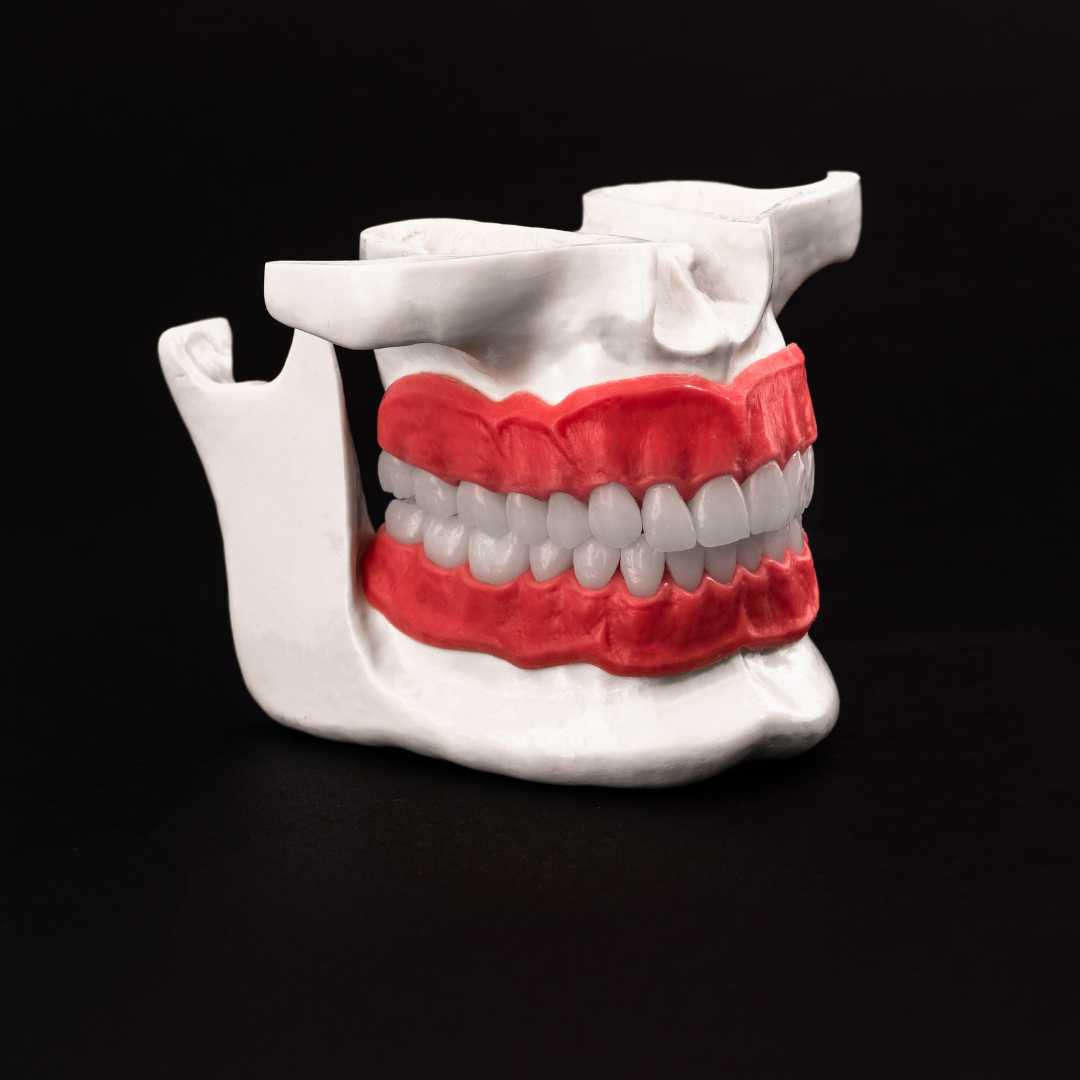
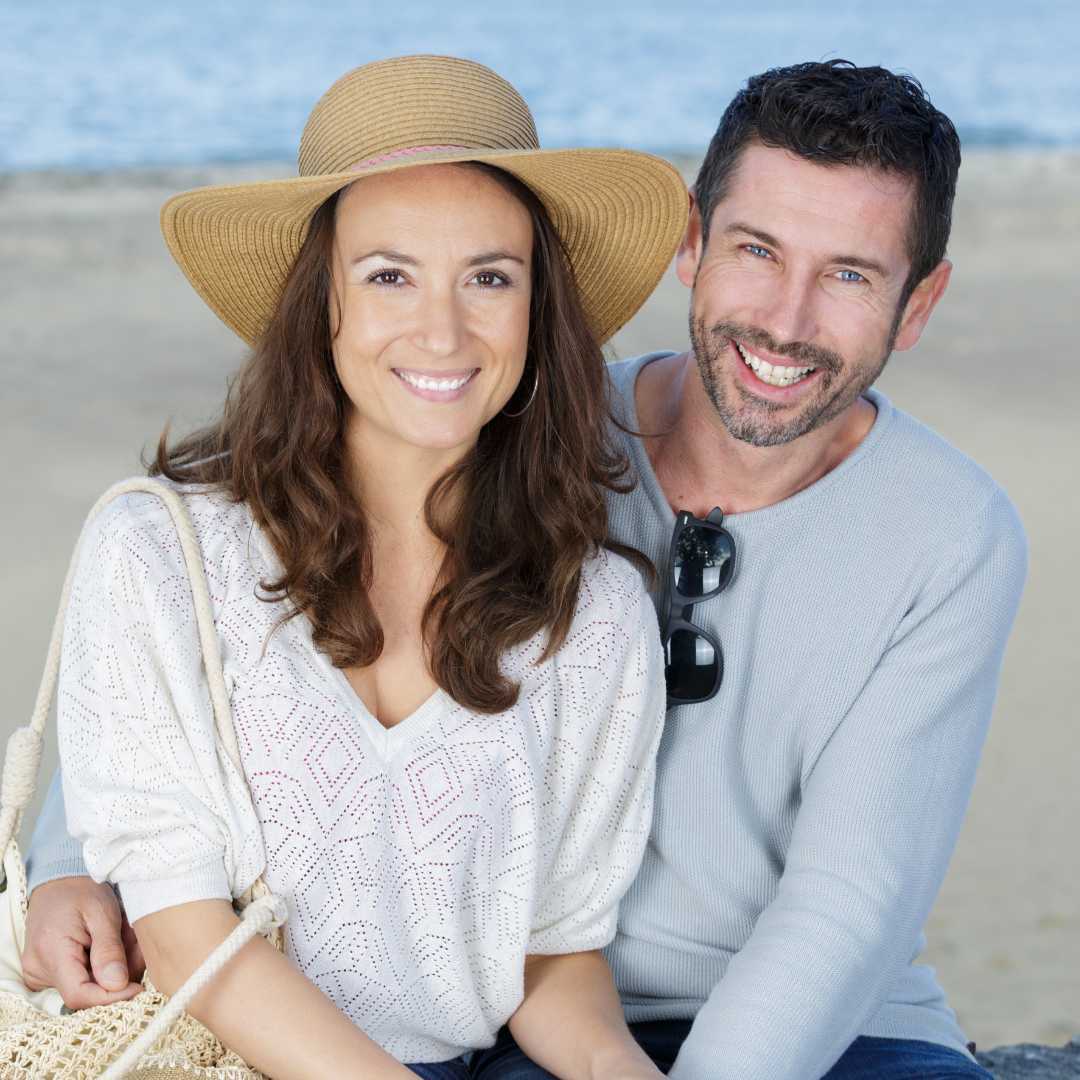
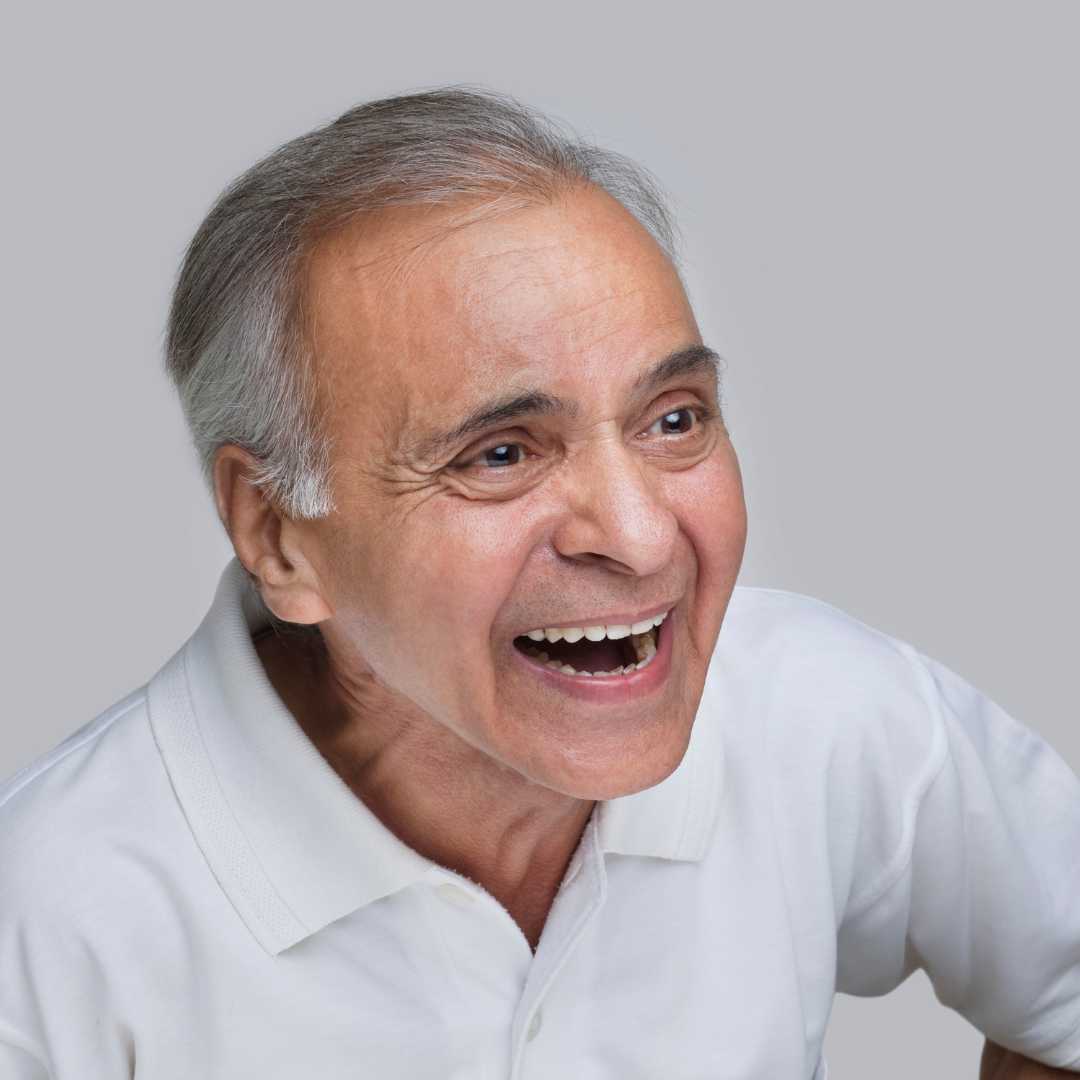


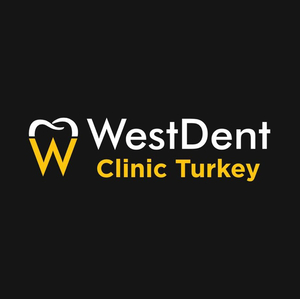
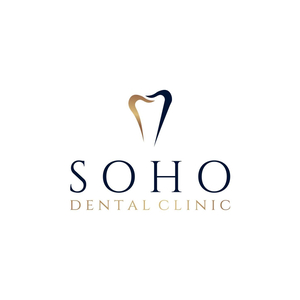

.png)




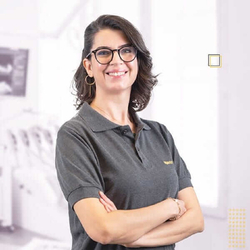
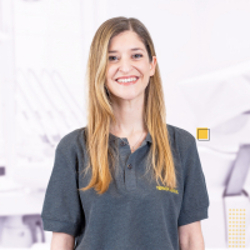



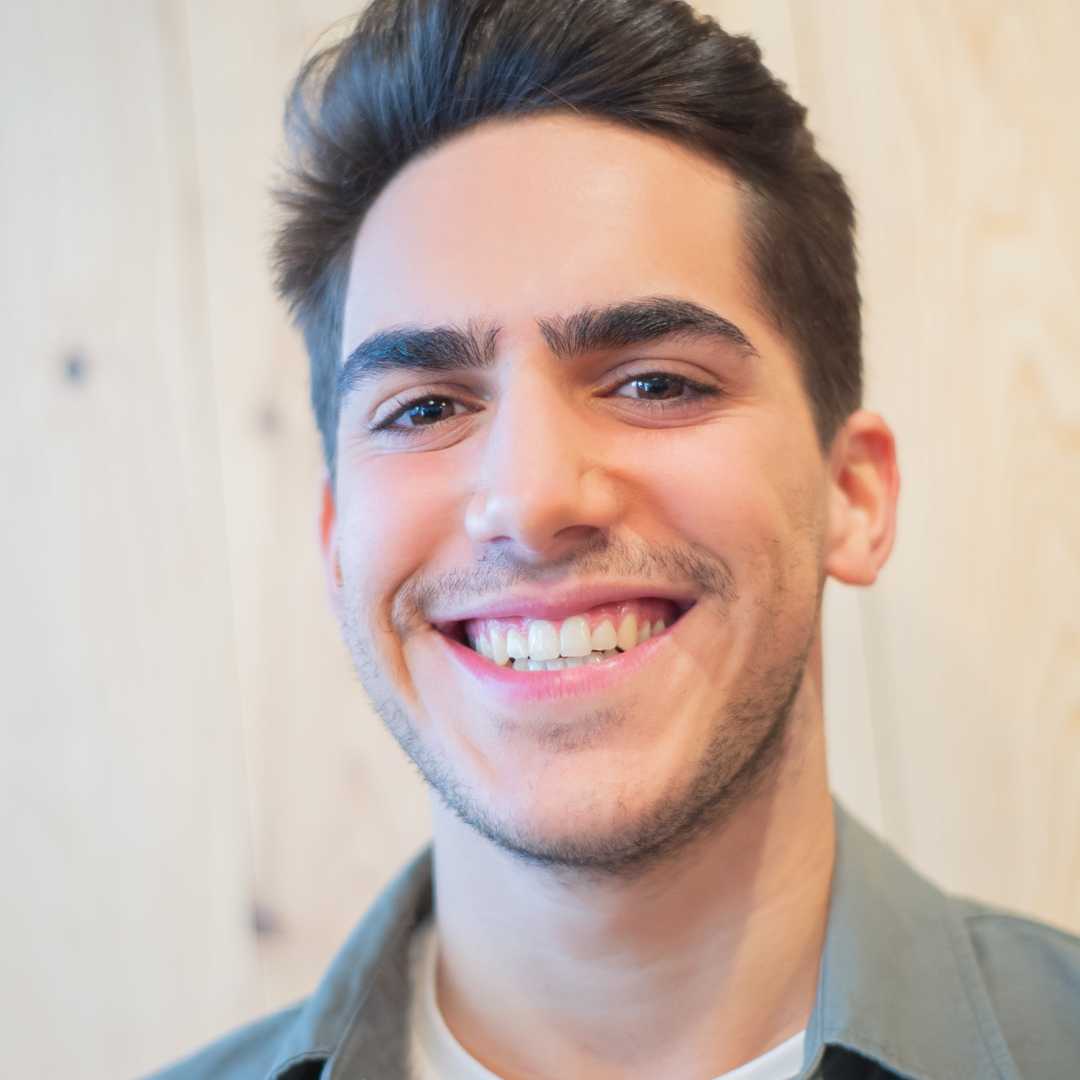


.png)
.png)
.png)
.png)



.png)
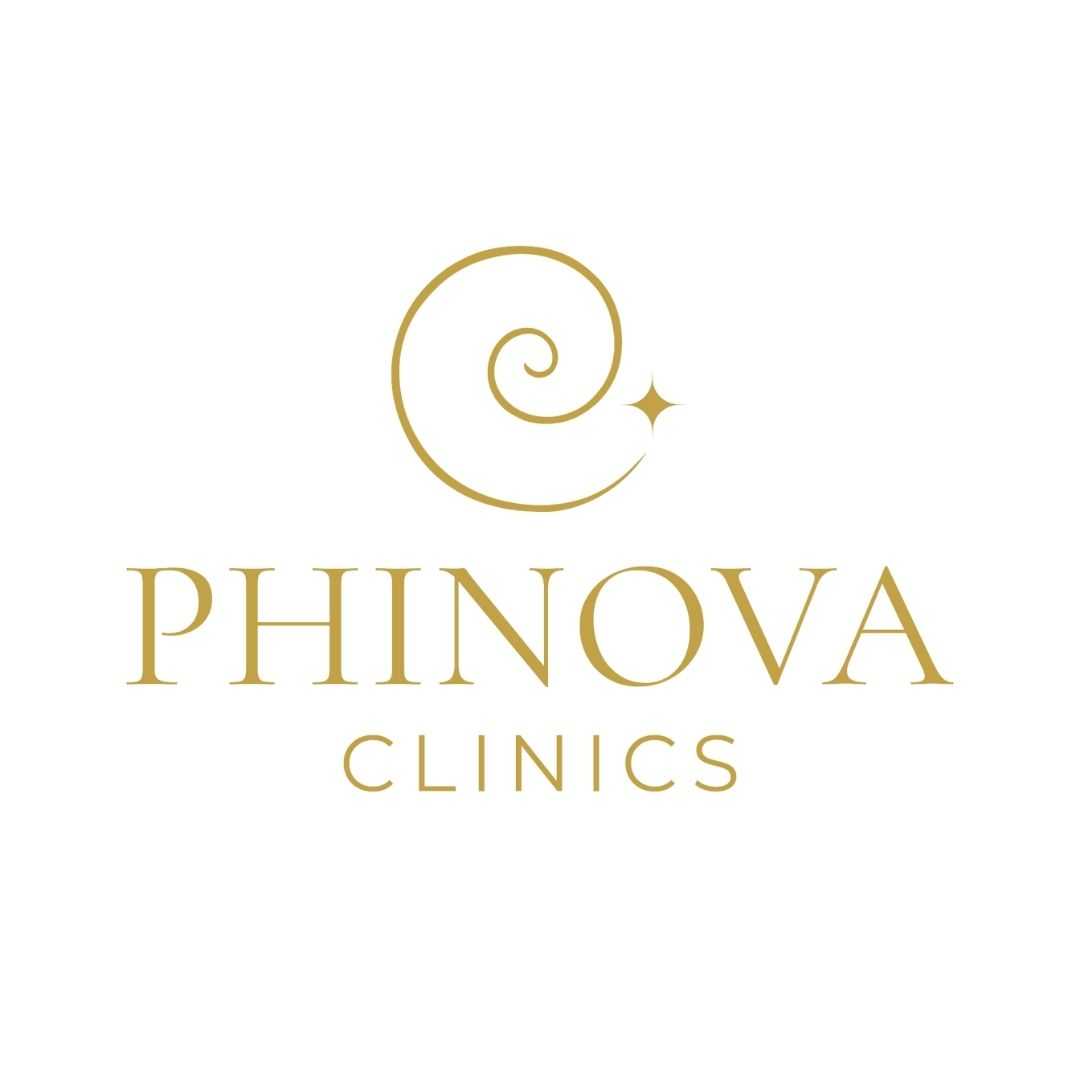

Share this listing